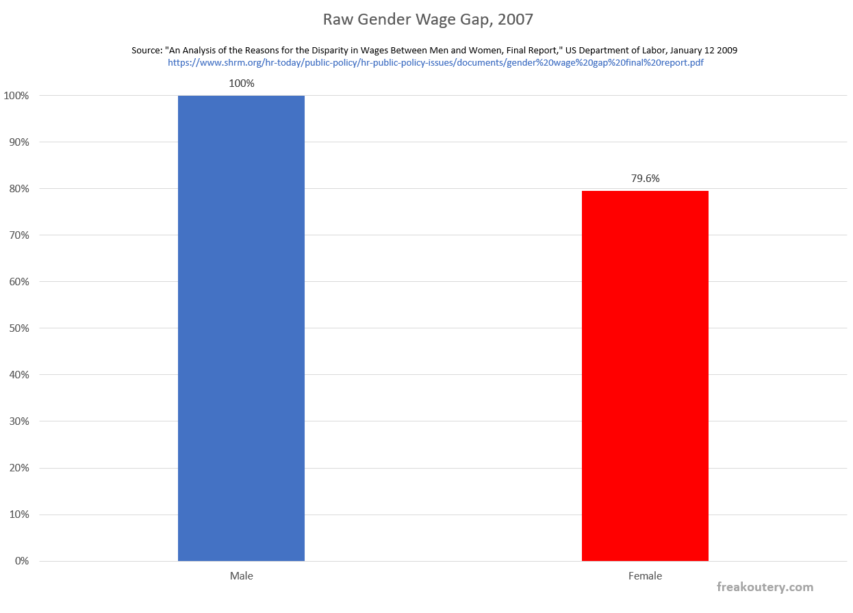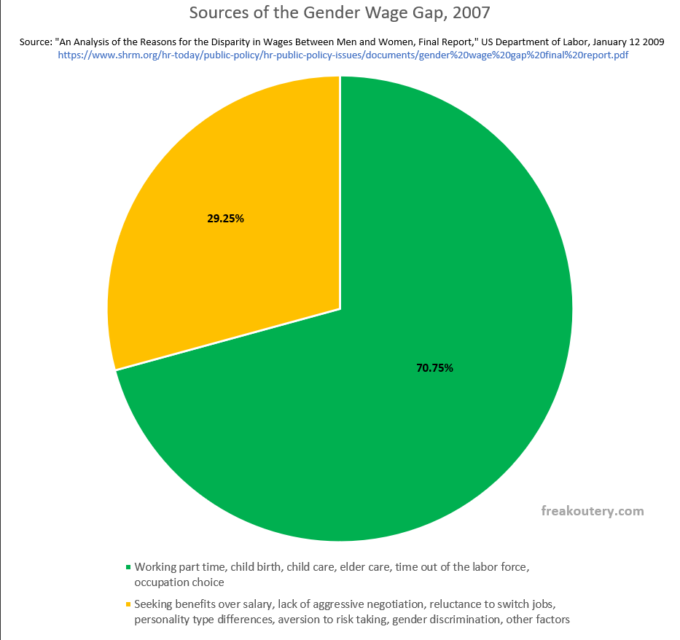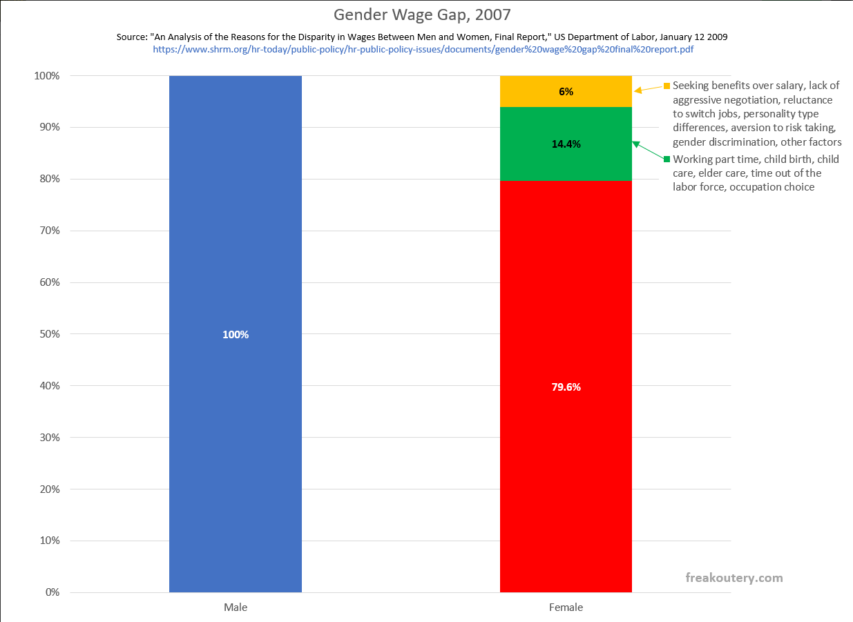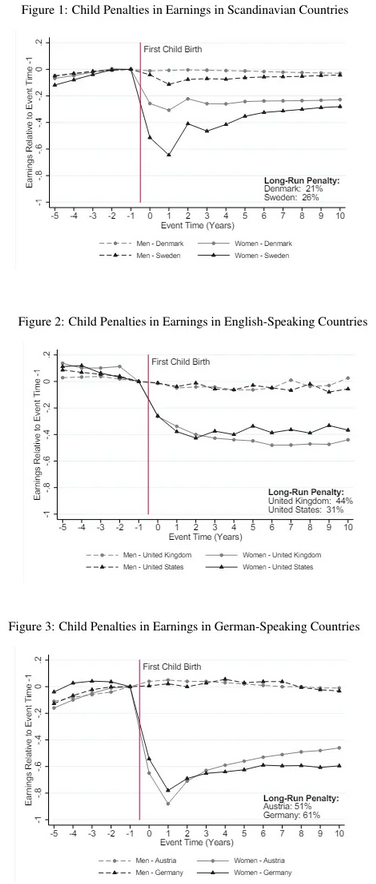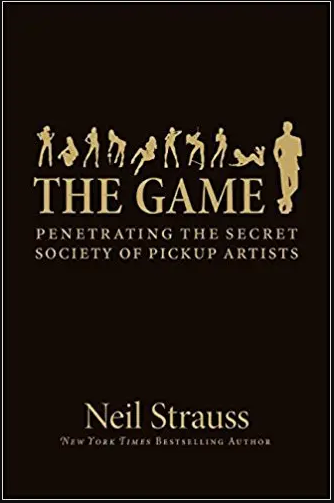Mismatched shoes are also nicely subversive. There is somewhere in the clothing code a notion that holds over from the Elizabethan era that says a person’s shoes must show that they are in the Elizabethan lingo, unconcussable. Shoes, especially the shoes of the male and the young, are meant to show that the wearer is, all apologies, grounded. (High heel shoes take their semotic precisely from the way they break this rule. The wearer, a female, demonstrates her vulnerability, her fragility, her elegance, her powers of evocation by showing herself not at all grounded.)
Grant McCracken, “Cotton, Converse and co-creation”, This Blog Sits at the, 2005-07-27.
June 23, 2024
QotD: Shoes
May 30, 2024
QotD: Is a “Pickup Artist” just an amateur method actor performing “fake it until you make it” drills?
The underlying principles of Game are sound, because they come from the world of advertising. Heartiste was very good about referring to the marketing background — sociobiology may have provided the theory, but marketing, particularly Robert Cialdini’s seminal Persuasion, provided the practice. Social proof, consistency and commitment, all that jazz, it’s just marketing, and marketing certainly works … as far as it goes. I’m not privy to the numbers (not being a senior exec at a major corporation), but I’m pretty sure that an ad campaign that verifiably produced a 5% increase in sales would be a smashing success. An ad campaign that got 10% would make you Don Draper, a legend in the field who is also complete fiction.
Which forces us to consider a second question: How much of Game’s “success” is just practice? I’d wager very long money that no one, in the history of seduction, has ever said “I hit on fifteen girls a day, but I never seem to get anywhere”. And that of course is the very first thing the Game gurus have you do — just approach girls, dozens of them every day. Practice any skill for an hour a day and you’re bound to get a lot better pretty quickly. If you stink at golf, for instance, go hit a bucket of balls every day after work; in a month you’ll be dramatically better than you were, even if — make that especially if — you were terrible to start with.
Then throw in the marketing-style success rate. A 5% sales increase might not seem that big, but it’s millions of dollars. So, too, “scoring with 5% of your approaches” is a stunning success rate compared to 0%, especially since, you know, it’s sex, which our culture has taught us is the only meaningful standard.
Finally, though I will cheerfully admit to never having been a PUA, or anything close to it, I’ve read a fair amount of their stuff, and it seems to me that what they’re teaching is “how to fake self-confidence”, which is to say, they’re teaching Method acting. The theory is that you “fake it ’til you make it” — that is, by acting self-confident at all times, eventually you’ll really be self-confident. That virtue is as virtue does, and vice versa, goes back at least to Aristotle, so I’m certainly not going to argue with it. I’m simply going to point out that self-confidence, though of course very real, is more than just a set of behaviors, though our culture makes it very difficult to distinguish the two … and, worse, makes both of them very difficult to distinguish from “just being an asshole”.
Severian, “Mental Middlemen II: Sex and the City and Self-Confidence”, Rotten Chestnuts, 2021-05-06.
May 28, 2024
QotD: Women’s voting interests
… I was young, then. Imbecilic stupidity is common in the young, who are subject to fashionable excitations. My mother, on the other hand, was older. As a Tory, she of course doubted whether women should vote at all; but as my father was of old Ontario Methodist farmboy stock, his congenital propensity to vote Liberal had to be acknowledged.
“I have to vote Conservative, for his sake,” she reasonably explained.
She had compounded his characteristic error in 1968, however, and felt she owed an explanation to her son. This began by reminding me of her fragile, female sex.
“One thinks of the party leader on the analogy of going for a date.”
And true enough, the Tory leader, Mr Robert Stanfield, was the sort of man you could present to your father. He could be relied on, to get you home safely, and on time.
“But there are times when a woman does not want to get home on time,” mama added.
She, a registered nurse acquainted with the eccentricities of mental patients, called my attention to a phenomenon I had not previously noticed. Whenever a truly monstrous (male) psychopath is strapped away in gaol, the prison receives adoring letters for him, from women. These correspondents have never met him, and know him only from accounts in the yellow press. He may have been found guilty of heinously murdering a succession of wives and lovers. But they promise to be waiting for him on the steps of the penitentiary; and as the police will confirm, they are still there.
My mother had never comprehended how a woman could be so crazy. But when she realized that she had herself just voted for “Pierre” [that’s Trudeau the elder, to clarify], she suddenly understood.
David Warren, “The women’s vote”, Essays in Idleness, 2024-02-22.
May 24, 2024
“[I]t is offensive to say that women should help men reach their potential; but … men must help women reach theirs“
There has been a lot of online outrage after Kansas City Chiefs placekicker Harrison Butker spoke at the graduation ceremonies at his alma mater:
“Stop giving men microphones,” wrote one of the signers of the petition to have NFL kicker Harrison Butker fired.
“As a woman living in post-Roe America,” declared another, “I’m exhausted from men telling women what to do with their lives.”
“How offensive to imply women are put here on this planet to help a man reach his full potential,” fumed a third. “We should be empowering women to achieve greatness however that looks for them. Having children or being a mother isn’t the currency we must pay to be treated as equal members of this society.”
And on and on they go in predictable, and predictably incoherent, statements. Apparently, it is offensive to say that women should help men reach their potential; but, in the next breath, men must help women reach theirs.
At a time when women encourage one another in “rage rituals” and feminists like Mona Eltahawy call for perpetual anger as the route to liberation, few can be surprised by the hysteria that followed National Football League kicker Harrison Butker’s speech to the graduating students of Benedictine College in Kansas. It is a rage that has led well over 200,000 of the furious, mostly women, to sign a petition demanding he be fired by the Kansas City Chiefs.
Manufacturing outrage is what feminist journalism does best, and its audience is eager for cosplay rebellion and narcissistic posturing even when, as in the case of the speech, the hyperventilating is far in excess of the fact. That even Benedictine nuns have joined the chorus shows how many women in all walks of life find such posturing near-irresistible.
Of course, if Butker had addressed the Benedictine College graduates to say that Catholicism was riddled with misogyny and homophobia, no popular petitions would have been launched. If he had said that abortion was a gift to humanity and that female priests would lead the church to glory, his words would have sparked dissent only in the most marginal of venues.
Let a man praise his wife for her devotion to family, and we witness a stampede of foul-mouthed nasties to their bullhorns.
May 23, 2024
QotD: The “creepy male feminist”
Christopher Hitchens used to have a cast-iron rule when it came to hardline Christians and the condemnation of some very particular sins of the flesh. […] I am beginning to wonder whether a similar trend is not emerging with another group, specifically that variety of men whom the internet — with its unerring ability to get to the cruel point — has come to describe as the “creepy male feminist”.
It is a distinctly 2010s phenomenon: the sort of chap who likes to present himself as a great spokesperson for, and defender of women and overdoes it so much that you just know that something else is going on.
He will invariably go beyond the usual courtesies and head some way past the point of merely regarding women as his equal. Instead, the creepy male feminist pulls a number of simultaneous moves. These include (though are not limited to):
- Presenting the plight of women in our society as distinctly worse than it is.
- Suggesting that everybody knows this but that some people (especially men) are deliberately covering for that fact.
- Making the suggestion — sometimes insinuated, often explicit — that nothing and nobody is more willing to stand between women as a whole and such rampaging patriarchs than the male in question. Anyone still unfamiliar with the type might recognise it under another entry in the lexicon of modern ignominy: “White knight” (n).
And a trend can now be observed, which is that with unnerving regularity the type of man who presents himself as the foremost protector of the entire female sex is precisely the person who shortly thereafter is exposed as having tried to help himself in distinctly un-gentlemanly ways.
Douglas Murray in “Beware the creepy male feminist: ‘White knights’ like Robert De Niro often turn out to be less than chivalrous”, Unherd, 2019-11-15.
May 10, 2024
QotD: The artificially induced public interest in women’s football
Sometimes I think (or is it feel?) that we are living in a propaganda state, not like that of North Korea, of course, in which the source of a univocal doctrine is clear and unmistakable, but one in which we are constantly under bombardment by an opinion-forming class that wants to make us believe, or be enthusiastic about, something to which we were previously indifferent or even hostile. There is no identifiable single source of the propaganda, and yet there seems also to be coordination: for how else to explain its sudden ubiquity? It is more Kafka than Orwell.
For example, quite recently there has been a concerted attempt to persuade the European public that women’s football (soccer) is interesting and exciting. The newspapers and online publications suddenly carry stories about it, with pictures, reports, profiles, and the like, whereas, shortly before, most people were only vaguely aware that women even played football.
No one can object to their doing so, of course, but the fact remains that they are not very good at it, at least not by comparison with men. They may be good — but with for women always appended. It is not the fault of women that they are not very good at football, any more than it is the fault of fish that they are illiterate, but the fact that everyone pretends not to notice it and dares not say it, at least in public, is surely a little sinister. A man of seventy may still play a good game of tennis, but it is always for his age: one wouldn’t expect him to win Wimbledon, nor would one expect excited, breathless reports on an over-seventies’ tennis tournament. The sudden interest in women’s football thus has a bogus feel about it, like the simulated enthusiasm of a crowd for the dictator in a communist state.
Theodore Dalrymple, “Propaganda & uglification”, New English Review, 2023-12-21.
May 6, 2024
Kulak on banned fantasy novels hated by Feminists
There are books that get banned for all sorts of reasons — histories that tell the “wrong” facts, books beloved by terrorists, political tracts by wild-eyed fanatics, etc. — but they’re not the ones Kulak is talking about here:
… the fiction books that are banned are usually fictionalized versions of those, works like Camp of the Saints, or The Turner Diaries, despite their ability to move people emotionally are not banned for their emotional content but for their political content (and in the case of The Turner Diaries its accurate instructions on bomb making)
HOWEVER! There is one series that was driven from bookstores, and by the late 90s was almost totally disappeared based purely on the … “feelings” … it generated in its readers. A fantasy series set entirely on another world with more or less nothing to say about politics back on earth, awakened … stirrings … in its readers so disturbing to the powers that be it had to be stopped.
The Chronicles of GOR by John Norman (Pen-name of Philosophy Professor John Lange)
Begun in 1966 and continuing to … today (he’s 92), the 38 book series is a Pulp Science Fantasy series in the vein of Edgar Rice Burroughs’ “Barsoom” series (shout out to John Carter of Postcards From Barsoom)
It has a lot of neat fantasy/historical/military hypotheticals to get the young male mind going “what if Vikings raided Japanese samurai cities with flying monsters?” but the thing that outraged the feminists and what they’d never admit enraged them, was its effect on female readers.
Norman has a lot of theories about sex … theories which his millions of books sold suggest are very true. Theories which recent DNA discoveries have confirmed.
At SEVERAL points in the genetic record you and nearly everyone on earth, have approximately 17 female ancestors for every 1 male ancestor.
This was of course the result of patriarchal warfare, polygamy, and sexual slavery … The kind familiar to any readers of the Iliad.
Indeed Norman cites Homer, Freud, and Nietzsche as the primary influences on his philosophy.
But whereas this produced the ancient and then modern warfighting man boys and young men idolize from the Iliad, through Rome, to the Mongols, to the adventures and conquests of early modern Europe. And whose feuds and daring consume half the plot of Norman’s stories …
The real controversy is what it produced of the women.
Women are natural slaves Norman tells and in the later books shows (the books greatly improved over time: don’t read them in order)
While these periods of slaving warfare between peoples and tribes produced modern technical, competent, highly coordinated and cooperative man … In women it produced natural slaves. Women who’d long for the chain, women who’d desire nothing so much as to be owned and to submit to a powerful violent man not of their choosing … women who’d never feel so “””empowered””” as when they obey, and surrender the spirits, bodies, and wombs which they cannot defend. Who’d never feel so loved and wanted as when they are abused and disdained.
This is the world and theory of mind Norman paints with a philosopher’s attention to completeness … 38 books deconstructing and undoing not only modern feminist ideas of equality, but Christian ideas of the equality of the soul and nobility of the feminine spirit. By any standard maybe the most sexist misogynistic books ever written, not out of ignorance or resentment but a philosopher’s indifference to any social or ethical preening that might impede the truth …
And women freaking loved it.
I encountered Captive of Gor at a mainstream book store in Mississauga in about 1975, and I was amazed that it was available for sale in still-pretty-conservative Ontario. I read several of the other books in the series, but I had no idea the author was still adding new volumes down to the present day. I can’t remember the last time I saw one for sale, but I guess the fans can still get their hands on them even if ordinary book stores no longer carry them.
April 17, 2024
QotD: The mid-life crisis, male and female versions
Most men get over the strippers-and-sports-cars overreaction pretty quickly, generally to be replaced by a new outlook on life. The guys who have come through the midlife crisis are generally a lot better people — more focused, more outgoing, far less materialistic — because they’ve taken up, however briefly, the perspective of Eternity. If you’re religious, you wonder if you’ll merit heaven. If you’re not, you wonder how you’ll be remembered. Either way, you start thinking about the kind of world you want to leave behind you, and what you’re going to do to achieve it with whatever time is left to you.
Which is why I’ve found the COVID overreaction so bizarre. Realizing your own mortality changes things. You can always tell, for instance, when it has happened to a younger person — when they come home, combat vets often act like middle-aged men going through a midlife crisis. Readjustment to civilian life is hard. Read the great war narratives, and it’s clear that none of them ever really “got over it”. Robert Graves and Ernst Junger, for instance, both lived to ripe old ages (90 and 103, respectively), and were titans in fields far removed from battle … and yet, the war WAS their lives, in some way we who haven’t been through it will never understand, and it comes through in every line they wrote.
If the Covidians were really freaking out about COVID, then, I’d expect one of two broad types of reaction: Either party-hearty midlife crisis mode, or a new determination to get on with whatever’s left of life. Obviously neither of those are true, and I just can’t grasp it — these might be your last few weeks on Earth, and that’s how you’re going to spend them? Sitting in your apartment like a sheep, wearing a mask and eating takeout, glued to a computer screen?
If you want a measure of just how feminized our society has become, there you go. Call this misogyny if you must, but it’s an easily observed fact of human nature — indeed, it has been observed, in every time, place, and culture of which we have knowledge — that post-menopausal women go a bit batty. Though a man might know for certain that he dies tomorrow, he can still keep plugging away today, because he’s programmed to find real meaning in his “work” — we are, after all, running our snazzy new mental software over kludgy old caveman hardware.
Women aren’t like that. They have one “job”, just one, and when they can’t do it anymore, they get weird. In much the same way high-end sports cars would cease to exist if middle aged men ceased to exist, so there are entire aspects of culture that don’t make sense in any other way except: These are channels for the energies of post-menopausal, and therefore surplus-to-requirements, women. You could go so far as to say that pretty much everything we call culture — traditions, history, customs — exist for that reason. Women go from being the bearers, to being the custodians, of the tribe’s future.
Severian, “Life’s Back Nine”, Rotten Chestnuts, 2021-05-11.
April 9, 2024
April 5, 2024
In the still-ongoing “war of the sexes”, when can women just accept they’ve won and cease hostilities?
At the amusingly named Handwaving Freakoutery, you can see a scorecard for the war of the sexes that has been ongoing since I was a child and seems no closer to ending than back in the 1960s:
I say this to make it absolutely clear that unlike a lot of boorishly banal material you might encounter within the wretchedly named “Manosphere”, this is not intended to be a whiny article. I’m not complaining, nor am I calling for societal change or action. I’m simply wondering exactly how dominant female privilege has to get before they declare victory and take their boot off the necks of men. I really don’t know the answer to this question, but we’ll speculate about that below after the wall of graphs. HWFO loves graphs.
Herein we will go point by point through as many measurable societal markers as I can think of, leaving no marker unmarked, and put together a Gender War Scoreboard describing as accurate a snapshot as possible of the current state of the United States. Then we’ll close with some analysis about how badly it would have to get before the women finally just declare victory and move on. This post shall be too big for email.
To assign our score, we will look at sets of data that fall generally into two categories. For victimization ratios and similar, we’ll just look at percentage by gender. For comparing two uncapped sets of data, such as life expectancy, we’ll look at a ratio and make them both add to 100 for an apples-to-apples comparison. Then we’ll add them all up at the end to tally the score.
Salary
HWFO covered the gender wage gap in 2022, but I’ll summarize it here so you don’t have to read back. According to a 2008 analysis by the Department of Labor, now 16 years old, the raw gender wage gap was 20.4% in 2007:
Most of the gap was explainable by career choice and lifestyle choice differences:
When compared properly that looks like this:
Sixteen years ago, the bits of the gender wage gap that weren’t explained by career and life choice differences only totaled 6%. This fact has been known for a decade and a half and is constantly hidden from view by Pew, the NLWC, and any other major organization that profits from the perception that this gap is large and persistent. It has also assuredly closed to narrower than that 6% in the ensuing decade and a half, but nobody’s replicated the Department of Labor analysis. Look closely at the effects in the green bar identified by the Department of Labor. “Child birth” is how you become a mother. “Child care” is something mothers do. “Working part time” is something mothers do. “Time out of the labor force” is something mothers take. “Occupational choice” is something women change when they become mothers. Here are some graphs from Kleven et al, March 2019:
The solid lines are women. In every studied area, the women make equal or more than the men do up until the birth of their first child, and then they make less. The gender wage gap difference is in the choice to have children. Women choose to make professional concessions to raise a family while the men don’t. Is this fair? Some might say no, but only if they also don’t want to be the primary caregiver for their kids. Some would say yes, for the following two reasons: (1) women choose this, especially in feminist societies, but also (2) men are punished socially for choosing this. If you do not believe me, go make two fake male Tinder profiles with identical cute photos in them, and in the bio of one say “corporate lawyer” and the other say “part time daycare worker” and see which one gets more hits. Then do the same with a female profile. Men are socially punished by women for making the career concession, women are not socially punished by men for making it.
Often when these sorts of “equal pay for equal work” studies are properly controlled for mothering and career choice, they find that men are paid less than women for equal work. Google was pretty famously forced by their neo-progressive staff to do an internal analysis of the subject, and uncomfortably discovered they were overpaying women for being women on an “equal work” basis. The results were twofold. First Google paid all the men a one time bonus, then Google quietly never investigated it again so they could get back to paying women more.
March 29, 2024
“TamponGate” at Vanderbilt
Suzy Weiss at The Free Press relates a story that’s just too weird not to share:
No one is ever going to let me guest-host this digest again, so I might as well tell you about some Vanderbilt girl’s tampon. This all started yesterday morning, when a wave of undergrad students rushed Kirkland Hall, where Vanderbilt’s chancellor’s office is located. Thus began their sit-in — a response to the college administration shutting down a student government vote over whether the school should divest funds from Israel.
The protesters remained there for nearly 21.5 hours — blowing Harvard’s 12-hour “hunger strike“, also known as a good night’s sleep — out of the water, before police began removing and arresting students, some of whom have since been suspended.
There are many dumbfounding moments from this latest campus frenzy — for example, when the students, arms linked, called the black police officers protecting the chancellor “puppets”. When food was brought in from Panera Bread by the administration for the officers but not the students, it was treated like a human-rights abuse.
But the tampon takes the cake. (Major props to Steve McGuire for compiling the best episode of the internet since yesterday.)
Here’s what went down: during one of those 21.5 hours of the protest, probably at an ungodly one, a few of the student demonstrators decided to call 911. That’s because their friend, who was part of the sit-in, had to change her tampon.
Specifically, she was “being denied the right to change her tampon that has been in for multiple hours, which leads to an increased risk of toxic shock syndrome.”
The frankly Zen-like 911 operator, who deserves a raise, was understandably confused. “Ma’am, do you have an emergency?”
Um, yes?! The student on the phone requests urgent medical assistance.
“You’re telling me your friend in Kirkland needs an ambulance. Is that what you’re telling me?”
Then in another video, one of the protesters—in a keffiyeh and a mask—approaches the police and an administrator, who was indeed in a sweater vest, demanding to know WHAT. WILL. HAPPEN. to her friend, should she leave the sit-in to change the tampon in question. The adults calmly explain that she won’t be arrested if she leaves the building. But can they confirm that she will never be arrested, ever?!
“She does not feel safe,” someone says off-screen, punctuating it with claps.
This whole thing makes the Nick Christakis Halloween costume struggle session look like a teachable moment. It must be seen to be believed. Watch all the videos in Steve’s thread here.
For starters, if having a tampon in for “multiple hours” is grounds to call for an ambulance, I should have been dead years ago. Second, this student was being denied no such right. All she had to do was get up, leave the protest, and find one of the hundreds of bathrooms that she had access to elsewhere on campus. Pro tip: wear a pad to the all-night protest. The First Amendment doesn’t come with a heating pad.
It’s all very Karen, to borrow a trope from 2020, especially when a protester demands the administrator find someone who can get them some answers. Just like middle-aged women who think dressing down the manager will somehow earn them a full refund, these students have convinced themselves that by linking arms and screaming “shame” at their college’s chancellor, they are stopping a war in the Middle East.
Don’t these authority figures realize they are standing in the way of a global intifada, which is also — obviously — a totally good thing?
We find out in a subsequent video that indeed the tampon was removed, though not in any bathroom. Reader, it came out at the sit-in, like so much urine in so many plastic water bottles. A woman on the microphone calls it “the most depraved shit I’ve seen in my entire life”.
Hard agree.
March 10, 2024
Viking longships and textiles
Virginia Postrel reposts an article she originally wrote for the New York Times in 2021, discussing the importance of textiles in history:

The Sea Stallion from Glendalough is the world’s largest reconstruction of a Viking Age longship. The original ship was built at Dublin ca. 1042. It was used as a warship in Irish waters until 1060, when it ended its days as a naval barricade to protect the harbour of Roskilde, Denmark. This image shows Sea Stallion arriving in Dublin on 14 August, 2007.
Photo by William Murphy via Wikimedia Commons.
Popular feminist retellings like the History Channel’s fictional saga Vikings emphasize the role of women as warriors and chieftains. But they barely hint at how crucial women’s work was to the ships that carried these warriors to distant shores.
One of the central characters in Vikings is an ingenious shipbuilder. But his ships apparently get their sails off the rack. The fabric is just there, like the textiles we take for granted in our 21st-century lives. The women who prepared the wool, spun it into thread, wove the fabric and sewed the sails have vanished.
In reality, from start to finish, it took longer to make a Viking sail than to build a Viking ship. So precious was a sail that one of the Icelandic sagas records how a hero wept when his was stolen. Simply spinning wool into enough thread to weave a single sail required more than a year’s work, the equivalent of about 385 eight-hour days. King Canute, who ruled a North Sea empire in the 11th century, had a fleet comprising about a million square meters of sailcloth. For the spinning alone, those sails represented the equivalent of 10,000 work years.
Ignoring textiles writes women’s work out of history. And as the British archaeologist and historian Mary Harlow has warned, it blinds scholars to some of the most important economic, political and organizational challenges facing premodern societies. Textiles are vital to both private and public life. They’re clothes and home furnishings, tents and bandages, sacks and sails. Textiles were among the earliest goods traded over long distances. The Roman Army consumed tons of cloth. To keep their soldiers clothed, Chinese emperors required textiles as taxes.
“Building a fleet required longterm planning as woven sails required large amounts of raw material and time to produce,” Dr. Harlow wrote in a 2016 article. “The raw materials needed to be bred, pastured, shorn or grown, harvested and processed before they reached the spinners. Textile production for both domestic and wider needs demanded time and planning.” Spinning and weaving the wool for a single toga, she calculates, would have taken a Roman matron 1,000 to 1,200 hours.
Picturing historical women as producers requires a change of attitude. Even today, after decades of feminist influence, we too often assume that making important things is a male domain. Women stereotypically decorate and consume. They engage with people. They don’t manufacture essential goods.
Yet from the Renaissance until the 19th century, European art represented the idea of “industry” not with smokestacks but with spinning women. Everyone understood that their never-ending labor was essential. It took at least 20 spinners to keep a single loom supplied. “The spinners never stand still for want of work; they always have it if they please; but weavers are sometimes idle for want of yarn,” the agronomist and travel writer Arthur Young, who toured northern England in 1768, wrote.
Shortly thereafter, the spinning machines of the Industrial Revolution liberated women from their spindles and distaffs, beginning the centuries-long process that raised even the world’s poorest people to living standards our ancestors could not have imagined. But that “great enrichment” had an unfortunate side effect. Textile abundance erased our memories of women’s historic contributions to one of humanity’s most important endeavors. It turned industry into entertainment. “In the West,” Dr. Harlow wrote, “the production of textiles has moved from being a fundamental, indeed essential, part of the industrial economy to a predominantly female craft activity.”
March 8, 2024
A fresh look at the PUA “bible”
In UnHerd, Kat Rosenfield considers the original pick-up artist bible, The Game by Neil Strauss, in light of more than a decade of changes in how moderns approach relationships with the opposite sex:
A decade letter, I’m struck by the astonishing prescriptiveness of this line: the notion that any sexual encounter preceded by flirtation, negotiation, or indeed any assessment of a suitor’s desirability should be understood as “less-than-ideal” — and that any man who seeks to make himself desirable to an as-yet-uncertain woman is doing something inherently sleazy. Granted, the anti-Game backlash began in the form of reasonable scrutiny of controversial seduction techniques like “negging” (a slightly backhanded compliment deployed for the sake of flirtation).
But since then it has morphed into something much stranger: the idea that anything a man does to impress a woman, from basic grooming to speaking in complete sentences, should be viewed with suspicion. Behind this is the same low-trust mindset that leads women to treat every date as a hunt for the red flags that reveal her suitor as a secret monster. If he compliments you? That’s lovebombing, which means he’s an abuser. If he doesn’t compliment you, that’s withholding, which also means he’s an abuser. Other alleged “red flags” include oversharing, undersharing, paying for the date, not paying for the date, being too eager, being five minutes late, and drinking water — or worse, drinking water through a straw.
Today, the turn against pick-up artistry can be understood at least in part as a reaction against some of its more prominent contemporary practitioners, including men such as Andrew Tate, who makes Mystery look like a catch by comparison. But it is also no doubt an outgrowth of a culture in which male sexuality has effectively been characterised as inherently predatory, while female sexuality is seen as virtually non-existent. The question that seduction manuals once aimed to answer — “how do I, a shy young man, successfully and confidently approach women?” — is now, in itself, a red flag, one likely to provoke anything from squawking indignation to abject horror to bystanders wondering if they ought to call the police. That you are even thinking of approaching women just goes to show what a troglodyte you really are. What do women want? The contemporary answer appears to be: to be left alone, forever, until they die — or to meet someone in a safe and sanitised way, via dating app … although even that option is increasingly positioned as inherently dangerous.
Meanwhile, I was surprised upon revisiting The Game to realise that the strategies contained within the book are not just useful but mostly in keeping with more traditional dating and courtship advice, from “peacocking” (wearing something eye-catching or unusual that can act as a conversation starter), to passing “shit tests” (responding with humour and confidence when a woman teases you). Even the much-derided negging wasn’t originally designed with the goal of insulting or belittling women, but rather to teach men how to talk to them without fawning and drooling all over the place. In the end, the message of The Game is more or less identical to the one in popular women’s dating guides, like The Rules or He’s Just Not That Into You: that confidence is sexy, and naked desperation is a turnoff.
And while this may just be a function of one too many viewings of the BBC’s Pride & Prejudice (featuring Mr Darcy, a man in possession of £50,000 a year and an absolutely legendary negging game), I wonder if the aim of seduction guides is, paradoxically, to restore our confidence in the tension, the mystery, and the playfulness of courtship in the age of the casual hookup. Even as we rightly rejoice in the fact that society no longer stigmatises women for desiring and pursuing sex, there is surely still something to be said for subtlety — and just because we aren’t consigned to the role of the passive damsel, dropping a handkerchief on the ground in the hope that the right man will pick it up, that doesn’t mean every woman wants to be horny on main. It’s not just that announcing your desire through a megaphone can seem uncouth; it’s also a lot less exciting than the dance of lingering glances, double entendres, and simmering chemistry that characterises a mutually-desired seduction in the making. Certain people might deride this brand of sexual encounter as “less-than-ideal” for its political incorrectness, but it’s wildly popular — in novels, in films, and in the fantasies of individual women — for a reason.
Meanwhile, the contemporary dating landscape is one in which the sheer fun of dating, courtship, and, yes, falling into bed together has been largely back-burnered in favour of something at once formal and immensely self-serious. In a world of handwringing over sexual consent — in which a man just talking to a woman at a coffeeshop can trigger an emergency response protocol — the stakes of sex itself come to seem unimaginably high, a breakneck gamble where one wrong move will result in a lifetime of trauma (or, if you’re a guy, a lifetime on a list of shitty men). Add to this the proliferation of dating apps, which makes the entire romantic enterprise feel more like a job search than a playground, and the whole thing begins to seem not just fraught but inherently adversarial — a negotiation between two parties whose interests are completely at odds, who cannot trust each other, and where there’s a very real risk of terrible and irreparable harm.
March 1, 2024
Women behaving badly on [police bodycam] video
Janice Fiamengo suggests that demands to the use of police bodycam footage involving young women being arrested for criminal behaviour is a weird bit of official white-knighting on the part of the authorities:
Moments of public outrage can be opportunities to consider deep-rooted cultural assumptions.
There’s been moral outrage lately over a popular YouTube channel called Drive Thru Tours. Launched in 2020, the channel started out by posting videos of tours through parts of New Jersey and New York. It hit paydirt last year when it began showing videos of police arrests, with titles such as “Rude 19-year-old Girl Arrested for DUI in Pullman, WA” (recommended if you want to get a flavor of the site) and “Belligerent Woman Arrested for DWI after Police Pursuit and Taken to Jail” (not recommended — very disturbing). The channel owner obtained the content — which until recently has focused exclusively on female offenders — from police bodycam recordings, now publicly available through freedom of information requests.
Bodycam footage was originally made accessible to the public so that American citizens can hold police accountable for their actions. Scrutiny of police behavior is widely considered a public good. Scrutiny of female behavior, however, is quite a different story — as responses to the channel demonstrate.
According to a small flurry of recent news reports, New Jersey police are warning that Drive Thru Tours is harming “vulnerable” young women by posting the evidence of their arrests. The bodycam footage was never intended, they protest, for such a purpose. In consequence, the Association of Chiefs of Police of New Jersey is calling for legislation against what they are describing as “online sexual predators“, and lawmakers in that state are considering a bill that would prohibit publishing the footage except within narrow parameters, including with the written consent of the subject.
Quite apart from whether such a bill is a good idea or not (I favor public access but have not given the matter serious thought), the language used in the articles is remarkable for its gynocentric sentimentality and misplaced sympathy.
One of the most vocal on the subject is Montville, New Jersey Police Chief Andrew Caggiano, who is quoted as stating that “It was never the intent of OPRA [the Open Public Records Act] to create such a platform that preys on young women and takes advantage of them at a time when they are vulnerable”. He also expressed a personal repugnance: “As a law enforcement professional and the father of three daughters, I am sickened by the fact that people are abusing OPRA to post these types of videos on social media sites”.
Given that it is not (yet) illegal to use bodycam material in the manner described, Chief Caggiano’s dramatic reaction seems overstated. One wonders in what sense the reckless and self-absorbed young people shown in these videos are “vulnerable”. Wouldn’t such language be better suited to their victims? Perhaps Caggiano knows something about his daughters that we don’t know (there is a video in which a “Cop’s Daughter Gets Arrested for DWI after Fleeing Accident Scene”): one would not normally expect a chief of police to so quickly substitute in imagination his own daughters for the inebriated and flagrantly dishonest women shown on Drive Thru Tours.
Caggiano’s bluster is, of course, all too familiar in a culture that cannot bear to hold women fully responsible for their bad actions — no matter how anti-social or potentially lethal — and must habitually frame them as innocent victims. It’s impossible to imagine such outraged sympathy being expressed for any male offenders in similar situations.
February 28, 2024
QotD: When the rules in the dating market all changed
So far we’ve only been talking about guys, but the gals went through their own version of the same process way back in the days. Indeed, it’s because the girls changed that the guys got into PUA in the first place.
Under the old dispensation, back before the Clinton Era (1988-2001), everyone acknowledged that there were a lot of users and abusers, douchebags and parasites and losers, out there in the world. That being the case, simply being an all-around ok guy with a steady job — what the PUAs came to term “beta providers” — was, in itself, a pretty solid resume in the dating market. “Just be yourself” was every guy’s dad’s advice when it came to dating, and back then it was pretty solid, since it was assumed that the decent job etc. flowed from being a decent human being. And since every girl’s mom was telling her complementary things, the system worked … until it didn’t, and you can date the change precisely: June 6, 1998, the premiere of the HBO series Sex and the City.
[…] Everyone has met one of those “one of the guys”-type girls. They’re great fun, and while you know what I mean when I say they’re not necessarily marriage material as-is, you therefore also know what I mean when I say they really are what feminists all claim to be: Strong, confident women. They are what they are, and they know it, take it or leave it.
The problem is, most women — and, it goes without saying, all feminists — aren’t “strong, confident women”, in the same way the vast majority of guys aren’t naturally “alpha males”. That’s the dialectic I’ve been trying to get at in this series of posts. Sex and the City, as much as every episode needs to be burned and the ashes shot into deep space, was just the manifestation of a long-developing process. Thanks to all that “self-esteem” shit that started in the Seventies, sometime in the Clinton Era a critical mass of young women decided that what they needed was to be “strong” and “self-confident”. But they didn’t know how to do that, because the people telling them this were fat lesbian college professors. Then HBO, sensing a valuable market niche, got into the act …
Sex and the City […] is the gayest show in the history of television. Carrie and the Gals don’t act like women; they act the way women think men act — which is to say, they act like gay men. Recall that the late 1990s also saw an explosion of female “comedians”, whose one “joke” was some version of “I got my period today, but damn, I still crave dick.” (Sex and the City, you’ll recall, was pitched as a comedy). And that’s a serious problem, because as every straight guy has said at least once in his life, being gay would be fabulous if not for the “sex with guys” part. I mean, how awesome would it be (every young man thinks), if you could reorient your whole life around your crotch?
Severian, “Mental Middlemen III: SATC”, Rotten Chestnuts, 2021-05-06.




